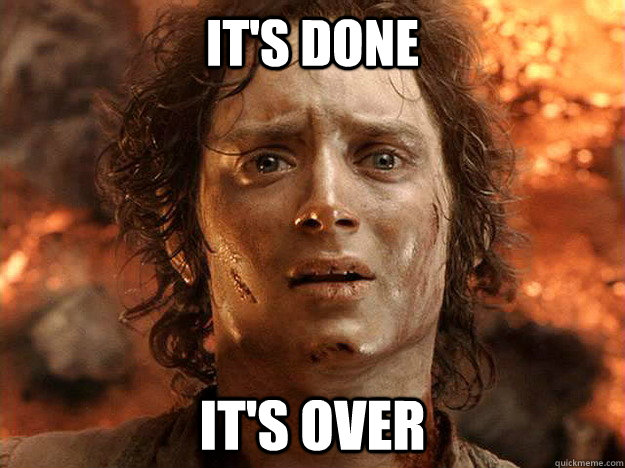Podcasts. They’re the new digital frontier of talk radio, full of informative content. The perfect way to kill time on a long commute. Trust me, I would know.
But podcasts aren’t all non-fiction in focus. There is a small but growing population of podcasts devoted to telling fictional stories, like the radio serials of yore. Move over The Shadow. Make way for Welcome to Night Vale.
In truth, we at Fictorians have been remiss. This post is long overdue. Night Vale has a been a Big Deal for several years now. Something like a local radio news show as written by Stephen King, Welcome to Night Vale tells the story of, in their words, “A friendly desert community where the sun is hot, the moon is beautiful, and mysterious lights pass overhead while we all pretend to sleep.”
With a healthy dose of both horror and humor combined with a sneaky dash of heart, Night Vale has brought audio storytelling into a new generation. It’s a process that entails some challenges. As I mentioned, the show is done in the format of a local news radio station, only set in a town where every conspiracy theory is real and anything horrific you can imagine is probably happening at that moment. Whether it’s mysterious hooded figures marching and chanting at the local sports stadium, the discovery of a mysterious subterranean civilization beneath lane five of the local bowling alley, a doorless and windowless library inhabited by monstrous librarians that defy sane description, or a city council that appears to be comprised of the same group of individuals that founded the town several hundred years in the past, Night Vale is given all the worldbuilding depth a storyteller could ever want.
The radio host, Cecil Palmer, is the voice of the podcast and the radio show within it. Because the show is broadcast from the Night Vale Community Radio station, all action that doesn’t take place at the Night Vale Community Radio Station must be described second-hand by Cecil, who is not generally witnessing it at the time. This flies directly in the face of that age-old writing adage, “show, don’t tell.” With the exception of when Cecil broadcasting on-location or is manning his mobile broadcasting studio, all he is doing is telling you, the listener, about local events, the community calendar, and whatever existential nightmare threatens to destroy his beloved Night Vale this week.
To make matters even more challenging, the climax of an episode’s plot generally occurs “offscreen” during the news show’s “weather” segment, which (contrary to its name) is always a song from an independent music artist. Once the weather concludes, Cecil returns and explains to his listeners how the crisis was resolved, and the episode wraps.
It’s a recipe for storytelling disaster if handled poorly. Yet somehow, Welcome to Night Vale’s writers, Joseph Fink and Jeffrey Cranor, make it work. Much of this credit goes to Cecil Baldwin (the actor behind Cecil Palmer). Without someone with his gravitas (his deep voice recalls trusted anchors of days gone by even as his frequent weirdness and goofiness reminds us what era it really is), the show’s format would absolutely fall apart. But the writing style is pitch-perfect for the format, and framing the story as a news segment, something we are all used to hearing told to us in the past tense, is a big part of why it works as well. This serves as yet another example of how for every rule of writing, there exist innumerable exceptions that succeed just fine.
The podcast picks and chooses its conventions well. In the past, seasons would generally have an overarching plot that played out in the background of the more focused, single-episode stories. Only in the last few episodes of the “season” (which spans a full year of real-world time, roughly 25 episodes, much like a network TV season), would the overarching story move into the foreground and come to a head. With the most recent season, they have broken the stories into a series of three-parters which have little connectivity beyond the characters and setting. And in the best tradition of shows like The Simpsons, they’ve populated their town with lots of quirky, lovable characters who grow and change with time.
But the show also experiments quite a bit within the confines of the format as well. In one episode, they recommend wearing headphones, because they play with which ear you can hear the audio feed from. It proves effectively creepy and disorienting, especially if you are listening alone. In one early episode, one of my favorites, they address the entire episode (titled “A Story About You”) to you, the listener, casting you as one particular resident of Night Vale who is having, shall we say, a bad day.
They’ve also created a series of live shows, where attendees can go experience a specially written, extra-long episode which changes every tour. These episodes are written specifically with live audience participation in mind, and with the assumption that attendees may never have listened to the show before. I’ve been to three of these shows myself, and they are a unique experience while still being utterly Night Vale.
Storytelling is a constantly evolving art form. Sometimes, an old form of storytelling, the oldest form, in fact, comes back in a new and different format. Some things about it change while others stay the same, but if done well, the total result is something new and special.
I’ll close with one of my favorite Night Vale quotes, and quotes in general, of all time:
“Before everything, before even humans, there were stories. A creature at a fire conjuring a world with nothing but its voice and a listener’s imagination. And now, me, and thousands like me, in little booths and rooms and mics and screens all over the world, doing the same for a family of listeners, connected as all families are, primarily by the stories we tell each other.
And after, after fire, and death, or whatever happens next, after the wiping clean or the gradual decay, after the after…when there are only a few creatures left, there will be one at a fire, telling a story to what family it has left. It was the first thing, and it will be the last.”
–Welcome to Night Vale, Episode 71, “The Registry of Middle School Crushes”
About the Author: Gregory D. Little
Rocket scientist by day, fantasy and science fiction author by night, Gregory D. Little began his writing career in high school when he and his friend wrote Star Wars fanfic before it was cool, passing a notebook around between (all right, during) classes. His novels Unwilling Souls and Ungrateful God are available now from ebook retailers and trade paperback through Amazon.com. His short fiction can be found in The Colored Lens, A Game of Horns: A Red Unicorn Anthology, Dragon Writers: An Anthology, and the upcoming Undercurrents: An Anthology of What Lies Beneath. He lives with his wife and their yellow lab.
You can reach him at his website (www.gregorydlittle.com), his Twitter handle (@litgreg) or at his Author Page on Facebook.


